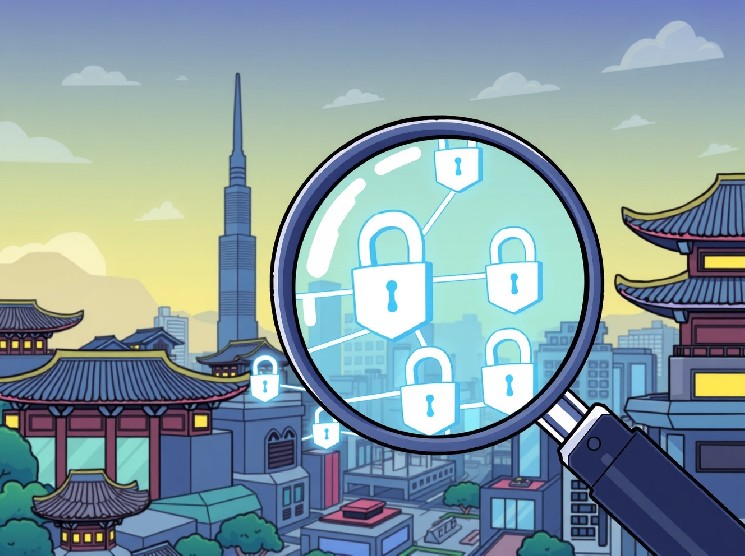[ad_1]
South Korea takes a decisive step in cryptocurrency regulation as authorities launch a comprehensive blockchain services inspection. This crucial move signals heightened scrutiny of digital asset platforms and could reshape the Asian crypto landscape. The blockchain services inspection focuses on multiple sectors within the digital economy, reflecting growing concerns about user protection and market stability.
What Does This Blockchain Services Inspection Cover?
The Personal Information Protection Commission (PIPC) initiated this blockchain services inspection following their November 20 plenary meeting. This examination targets several critical areas of the blockchain ecosystem. The inspection will assess virtual asset issuance platforms and remittance services. It also includes virtual asset exchanges handling crypto-to-fiat conversions and stablecoin transactions. Additionally, decentralized identity (DID) services and public blockchain infrastructure fall under scrutiny.
This blockchain services inspection represents South Korea’s proactive approach to regulating emerging technologies. The country aims to balance innovation with consumer protection. The timing coincides with global regulatory developments in the cryptocurrency space. South Korean authorities want to ensure their blockchain ecosystem remains secure and compliant.
Why Is This Blockchain Services Inspection Happening Now?
The decision follows a preliminary adequacy review that approved new blockchain-based services. This blockchain services inspection serves multiple purposes:
- Ensuring compliance with data protection regulations
- Verifying security measures across blockchain platforms
- Assessing risk management in cryptocurrency transactions
- Evaluating decentralized identity system reliability
- Monitoring public blockchain infrastructure stability
This blockchain services inspection demonstrates South Korea’s commitment to creating a safe digital asset environment. The country has been progressively strengthening its cryptocurrency regulations since 2017. This latest move aligns with global trends toward comprehensive digital asset oversight.
What Impact Will This Blockchain Services Inspection Have?
The blockchain services inspection could lead to significant changes in how platforms operate. Companies may need to enhance their security protocols and compliance measures. This examination might also influence how other countries approach blockchain regulation. The findings could set precedents for international standards in cryptocurrency oversight.
Market participants should prepare for potential regulatory adjustments following this blockchain services inspection. The results might affect trading volumes and platform accessibility. However, properly implemented regulations typically benefit legitimate operators and protect consumers.
Key Takeaways From South Korea’s Blockchain Initiative
This blockchain services inspection highlights several important developments:
- South Korea continues leading in cryptocurrency regulation
- User protection remains a top priority for authorities
- The inspection covers both centralized and decentralized services
- Results could influence global regulatory approaches
- Blockchain innovation must align with compliance requirements
The blockchain services inspection represents a milestone in South Korea’s digital asset journey. It shows maturity in the country’s approach to balancing technological advancement with necessary oversight. This careful examination could help build greater trust in blockchain technologies among mainstream users and institutional investors.
Frequently Asked Questions
What triggered South Korea’s blockchain services inspection?
The inspection follows a preliminary adequacy review that approved new blockchain-based services, prompting authorities to ensure proper implementation and compliance.
Which services are included in the inspection?
The examination covers virtual asset issuance, remittance services, crypto-to-fiat exchanges, stablecoin platforms, DID services, and public blockchain infrastructure.
How long will the blockchain services inspection take?
While no specific timeline has been announced, similar regulatory examinations typically take several weeks to complete, with findings released gradually.
Will this affect cryptocurrency trading in South Korea?
The inspection may lead to temporary operational adjustments, but it aims to create a more secure trading environment long-term.
Could this inspection influence other countries’ regulations?
Yes, South Korea often sets trends in cryptocurrency regulation, making this inspection potentially influential for global standards.
What should blockchain service providers expect?
Providers should prepare for enhanced compliance requirements and possibly updated security protocols based on inspection findings.
Found this analysis of South Korea’s blockchain services inspection helpful? Share this article with colleagues and cryptocurrency enthusiasts on your social media channels to spread awareness about these important regulatory developments.
To learn more about the latest cryptocurrency regulation trends, explore our article on key developments shaping blockchain compliance and institutional adoption.
Disclaimer: The information provided is not trading advice, Bitcoinworld.co.in holds no liability for any investments made based on the information provided on this page. We strongly recommend independent research and/or consultation with a qualified professional before making any investment decisions.
[ad_2]

